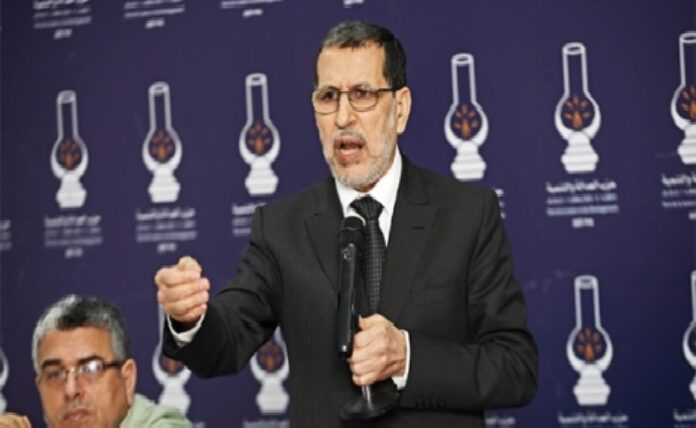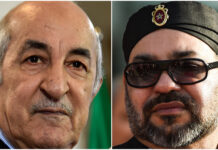Frédéric Ange Touré
During the Moroccan legislative elections, the Islamist JDP party lost almost all of its seats in Parliament. A rout that owes a lot to royal strategy.
The Moroccan Islamist party, the Justice and Development Party (JDP), has been in turmoil for several months. The “party of the lamp” had however, in recent years, shone by its positions against corruption and for social justice, but an internal crisis got the better of a weakened JDP. After a decade in power, the party has practically collapsed: in the Moroccan legislative elections, it lost 113 seats out of the 125 it had in the House of Representatives. With now 12 seats, it suffered a historic rout. The other parties, from the National Rally of Independents (RNI) to the Authenticity and Modernity Party (PAM), including the Istiqlal (Independence) Party (PI) won the bet.
While waiting for the official results on Thursday, the time is already on the record for the JDP. What could have happened to make the Islamists stumble, or even fall? The results of the legislative elections are clear: the parties close to the royal palace were the most popular. Saadeddine Othmani is due to step down as Prime Minister shortly after a final blow: a refusal to meet with Israeli foreign minister Yair Lapid last August. A more than symbolic event: once close to power, the Islamists of the JDP have, since the signing of the Abrahamic Accords and the normalization of relations between Morocco and Israel, become real opponents of the royal palace.
The Justice and Development Party is Under the Control of the Royal Palace
With a turnout of more than 50%, the legislative elections were more attended than usual, in particular thanks to the organization of municipal and regional elections. The system also approved a draft law that determines the electoral quotient. This new method of calculation, based on the number of voters and unregistered people, was deemed “undemocratic” by the AKP, which hoped for a low turnout to maintain its majority. So this text, designed specifically against the Islamists, would be fatal to them.
Throughout the day of the vote, the JDP reported “serious irregularities” while the Minister of the Interior considered that everything had gone normally. It must be said that, for several years, King Mohammed VI has hoped to get rid of the Islamists of the JDP: in 2017, he had withdrawn from Abdelilah Benkirane the charge of forming a government. By opting for Saadeddine Othmani, the king had appointed a prime minister whom he knew well, since he had been foreign minister. Did Othmani, smoother than other figures in his party, represent a transition towards the end of political Islam in Morocco?
Since that date, the Islamist party has been in a state of implosion. Officially, Benkirane and Othmani both enjoyed unwavering support from activists. Unofficially, the revocation of one in favor of the other will have marked the beginning of the end of the JDP. “Behind this facade unanimity, Islamist executives and activists cringe. They consider that the Palace is indebted to them after all they have done for the stability of Morocco and its monarchy by not joining, in 2011, the Moroccan ‘Arab Spring’ and by helping to defuse the wave of protests which roamed the country”, summarizes Orient XXI (The Arab world’s leading online journal).
Whatever, the king of Morocco wanted to put the JDP back into the opposition rather than the majority. As stated in article 42 of the Constitution, the monarch remains “the supreme arbiter between institutions” and must ensure “the proper functioning of constitutional institutions”. By dismissing Othmani and his men, Mohammed VI regains control of a Parliament won over to the Islamist cause: the end of a romance between the JDP and the royal palace.
Separate the Religious from the Political?
Does this mean the end of political Islam in Morocco?
In Algeria, Islamists are ostracized from the government despite undeniable popularity, Morocco preferred consensus. But by “playing” politically with the JDP, the palace has pushed the militants towards Al-Adl Wal-Ihsan (Justice and charity), an illegal Islamist movement, and killed from within the JDP which will have to renew itself. A strategy that is reminiscent of what is currently taking place in Tunisia, where President Kais Saied suspended the activities of the Assembly of People’s Representatives and made the Islamists of Ennahda face up to their responsibilities.
Whether in Morocco or Tunisia, Islamists will have to reinvent themselves. On the Tunis side, Ennahda will have to clarify its position. The JDP will try to get up after its rout. But both have in common that they have been in power since 2011, with varying degrees of success. “The political ‘normalization’ of Ennahda and the JDP and their integration into the established political game have not led to an effective separation between the two fields of action and have not eliminated the porosity of the borders between religious and political” , summarizes researcher Anca Munteanu. Removed from power in these two countries, members of parties under political Islam will now have two options: to become full-fledged political groups or to disappear.
Source: Le Journal de l’Afrique











